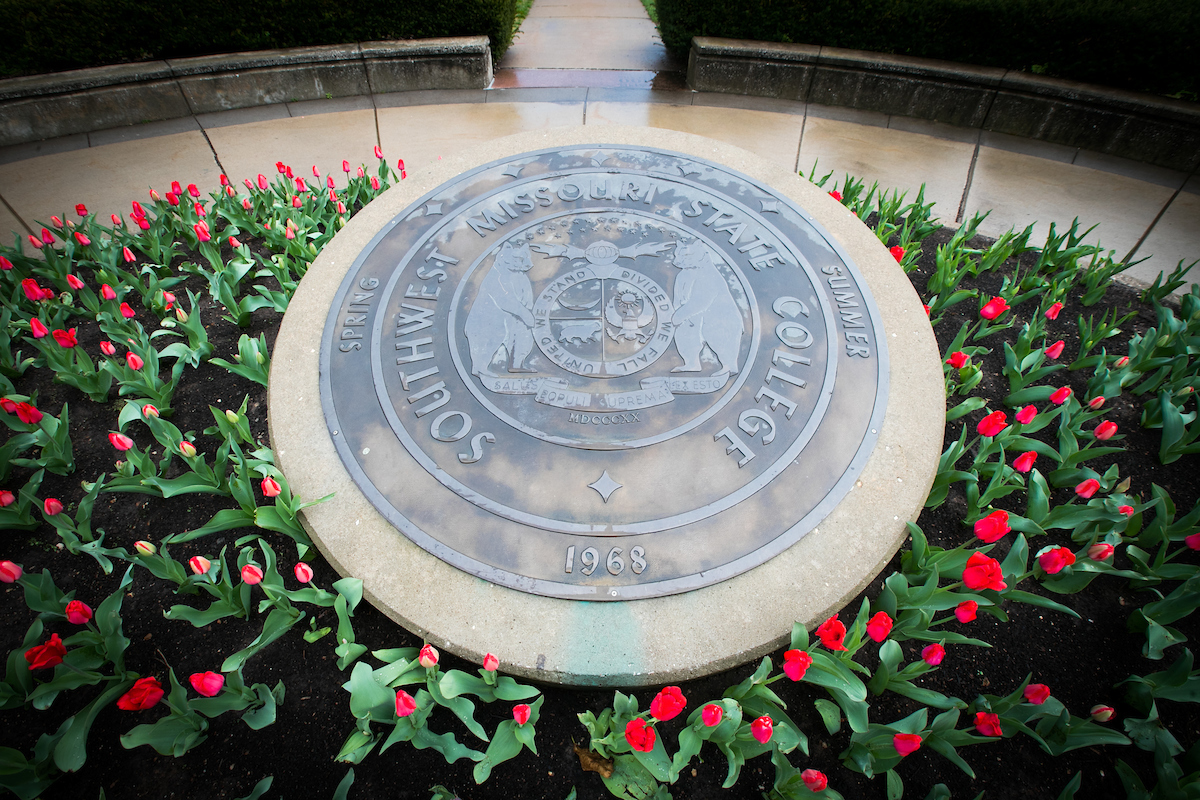Last fall, Dr. John Rose, head of the School of Defense and Strategic Studies (DSS) in the Reynolds College of Arts, Social Sciences and Humanities, taught a graduate course on emerging strategic challenges. The class took place in Washington, D.C., where DSS is based, from 6 to 9 p.m., Eastern time.
“There was an Army captain participating from Tokyo, where it was the next morning,” Rose says. “We had an Air Force officer at Ramstein Air Base in Germany and an Army chemical officer who was in Romania. For them, it was midnight to 3 a.m. We had a student in Alaska and a student in Canada. There were three students in the classroom. Everyone else came up via Zoom. That’s the magic of technology.”
It’s also the reality for DSS programs, which often appeal to active military personnel who are seeking professional development and career advancement. Given the nature of their work, they might study from virtually anywhere in the world.
As Rose puts it, “We are advancing the careers of young men and women who are engaged in public service, dedicated to protecting the United States against some of the most difficult challenges we might face.”
A Partnership Full of Purpose
About a decade ago, Rose, a retired brigadier general, was serving as per course faculty in DSS. He was also a graduate of the program — when it was part of the University of Southern California, before it joined Missouri State — and he knew its impact on his own career.
Dr. Keith Payne, professor emeritus and then-DSS department head, reached out to Rose about an inquiry from Fort Leonard Wood (FLW). The FLW training team was seeking a master’s program that would serve Army chemical officers. The DSS Master of Science with an emphasis in countering weapons of mass destruction seemed like a good fit. Knowing that Rose had the background and expertise to facilitate this conversation, Payne authorized him to serve as the department’s liaison with FLW.
Drawing on Personal Experience
“He sent me to Fort Leonard Wood, where I was able to meet with the training team, describe our faculty and courses, and give them an idea of our program’s structure and scope,” Rose says. Months later, DSS submitted a proposal to offer its master’s degree to Army chemical corps officers in the Captain’s Career Course — a professional development course for Army officers between their fifth and eighth years of service.
“Having served 30 years in the military, I knew where those officers were coming from, where they were headed, and I knew the value of our program,” Rose says.

Expert Preparation
As the DSS team crafted its bid for FLW, they leveraged Rose’s expertise and the knowledge of other DSS faculty, who have experience as ambassadors, senior military officers and senior intelligence officials.
“That offered these young men and women an incredibly valuable perspective,” Rose says. “We created a program that meets the professional needs of officers as they advance through the ranks. It ensures they’re qualified to understand issues at both the policy and strategic levels.”
FLW selected the DSS bid. With the enthusiastic support of university and college leadership, Missouri State signed an articulation agreement with FLW. When officers begin the program, they spend approximately nine months in residence at FLW. Then, they return to deployments throughout the world. DSS offers a range of modalities — in person, online and synchronous via Zoom — to meet their needs as they complete the degree.
To date, 51 students have earned master’s degrees through this partnership with FLW. “Should there be a biological, chemical or radiological weapon event, these are the men and women who are trained to respond and know what needs to be done,” Rose says.
Generous Financial Support
Rose and his DSS colleagues believe in their program. They also believe that officers should be able to pursue it without taking on excessive debt.
Missouri State’s commitment to affordability is one ally in this goal. Generous, private donations also play a significant role. Thanks to private support, DSS has been able to award more than $550,000 in scholarships to students in the FLW master’s program during the past seven years.
“I’m so very grateful that there are institutions and individuals who have privately provided scholarship funding to these officers on the basis of need and qualifications,” Rose says. “For many of them, it’s the reason they’re able to pursue this path.”
Around Campus…

On April 2, Dr. Natasha DeVore, assistant professor of chemistry and biochemistry, officially received the 2024 Governor’s Award for Excellence in Teaching at the Council on Public Higher Education’s annual event. Governor Mike Kehoe provided remarks. Missouri State leadership, including President Dr. Richard B. Williams, Interim Provost Dr. Tamera Jahnke and Dr. Adam Wanekaya, head of the chemistry and biochemistry department, were present for the occasion.
Rewind
Last fall, DeVore shared her teaching philosophy with us. One of our favorite takeaways: “In science, you work closely with other people — that’s one of the things that makes it fun. If you can’t communicate your ideas to the public, or if you can’t communicate your ideas to other scientists, you might struggle to bring attention to your work. We’re always building on knowledge that’s provided by other scientists and scholars, so we’ve got to learn to communicate well.”

